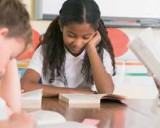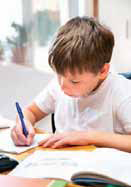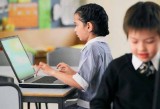By becoming researchers, children not only discover how the world ticks, but what they can do to change it, says Diane Hofkins...
Arriving at the Institute of Education’s conference hall in London, the researchers were feeling nervous. They had checked their data and carefully prepared their PowerPoints. But they would be presenting their findings to an audience of eminent academics as well as teachers and students, so they didn’t want to mess up.
In the event, these 10 and 11-year-olds from primary schools in London, Oxford - and even one in Turkey - wowed peers, teachers, professors and pundits with their confident presentations.
The conference, Young People: Doing and Using Research to Change Schools & Communities, was organised by the IOE’s Professor Kathryn Riley and colleagues from the London Education Research Unit, which has been working with London schools to develop children’s research skills.
The value of teachers doing research in their schools is well known, but why should pupils be interested and what would they gain?
Doing research, says Professor Riley, gives pupils a voice, and enables them not only to find out about their communities but to influence them as well. “When you learn to be a good researcher you’re beginning to understand what makes the world tick, but also what you can do about it,” she says. “You never stop asking questions. That becomes really important for you in everything you do.”
Mary Kellett, director of the Open University’s Children’s Research Centre, agrees “There’s a need, from the social justice point of view, that children and young people get an opportunity to research issues they feel are important,” she says.
“It’s about enhanced and higher order thinking in ways the traditional curriculum doesn’t touch. They’re not working from secondary sources; most of what you do in school is received knowledge. The opportunity to create and work from self-generated data is very exciting and important for the development of all sorts of learning.”
 Professor Kellett has pioneered successful ways to teach young children to do high quality academic research using games and other activities, and believes it is selling children short not to provide them with this level of training. She points out that teachers who have done research for their own higher degrees may want to support children in their research; or schools could work with a university.
Professor Kellett has pioneered successful ways to teach young children to do high quality academic research using games and other activities, and believes it is selling children short not to provide them with this level of training. She points out that teachers who have done research for their own higher degrees may want to support children in their research; or schools could work with a university.
The professors also agree that research is for everyone – not just the most able, although these are the children most likely to put themselves forward. It can help every type of child develop life skills, confidence, a greater ability to prioritise and a sceptical awareness of how information is presented in the media. “It has a tremendous impact on children’s sense of who they are and the fact that they can contribute”, says Mary Kellett.
She argues that doing research goes much further than an ordinary “finding out” classroom project. It additionally involves:
• Formulating a research question
• A methodology design (the methods used to carry out the research)
• Collecting raw data
• A scrutiny of validity (does it do what it set out to do?)
•The generation of new knowledge
Children who have worked with the centre have researched questions such as: “How are 9-11 year olds affected by their parents’ jobs?”, “What do children in KS2 in my school think about global warming?” and “Are girls and boys treated differently at school?”
Children learn about different research methods – for instance asking open or closed questions – consider ethics (for example, how do you keep the data confidential?) and look at other research on their topics before formulating their own research question.
Children who have worked with the IOE say that research is valuable – among other things - because it enables you to find things out, it can expose bad practice, and it can lead to real improvements in people’s lives.
 The Link Primary, near Croydon, is a school for children with language and communication difficulties. Pupils decided to research fair trade shopping as part of their Rights Respecting Schools Award. Children surveyed their classmates, parents and Link Secondary pupils. They also tried to ring supermarkets to ask about their policies, but only Morrisons was willing to talk on the phone. The project was “a very meaningful and purposeful way of them using their skills,” says headteacher Beverley Dixon. She was par ticularly proud of how confidently presenters Tom Hopson, James Grindrod and Alfie Schendel had answered questions about their research at the conference, because they couldn’t have prepared for them in advance.
The Link Primary, near Croydon, is a school for children with language and communication difficulties. Pupils decided to research fair trade shopping as part of their Rights Respecting Schools Award. Children surveyed their classmates, parents and Link Secondary pupils. They also tried to ring supermarkets to ask about their policies, but only Morrisons was willing to talk on the phone. The project was “a very meaningful and purposeful way of them using their skills,” says headteacher Beverley Dixon. She was par ticularly proud of how confidently presenters Tom Hopson, James Grindrod and Alfie Schendel had answered questions about their research at the conference, because they couldn’t have prepared for them in advance.
She believes children with any level of ability could be involved in research, either as a researcher or a participant . ” That’s not the child’s problem. It’s our problem, even if it ‘s just thumbs up.”
 Columbia Primary in Tower Hamlets is committed to enhancing pupil voice and wanted find new ways to engage as many children as possible. The research project was child-driven; pupils chose the topic – is there waste at Columbia School? – and came up with ideas about how to proceed. Teachers guided them and made links with established research methodology. Deputy head Oliver Woodward said doing the project had helped the children understand that “you don’t solve a problem just by doing something. You need to study the problem first.”
Columbia Primary in Tower Hamlets is committed to enhancing pupil voice and wanted find new ways to engage as many children as possible. The research project was child-driven; pupils chose the topic – is there waste at Columbia School? – and came up with ideas about how to proceed. Teachers guided them and made links with established research methodology. Deputy head Oliver Woodward said doing the project had helped the children understand that “you don’t solve a problem just by doing something. You need to study the problem first.”
The researchers, all in Y5, sought to find out whether and where other children believed there was waste at their school. They knew it was important to remain neutral, but found it could sometimes be hard not to ask a participant, “Are you sure?” But as one pupil explained, “We couldn’t tell them to change it because it’s their opinion.”
Use the bottle-flipping craze to create good school behaviour, not bad
Behaviour Management
Outstanding schools: RJ Mitchell Primary
Outstanding schools
If your marking doesn’t affect pupil progress - stop it!
Ace-Classroom-Support
Make World Book Day Extra Special This Year
Ace-English
